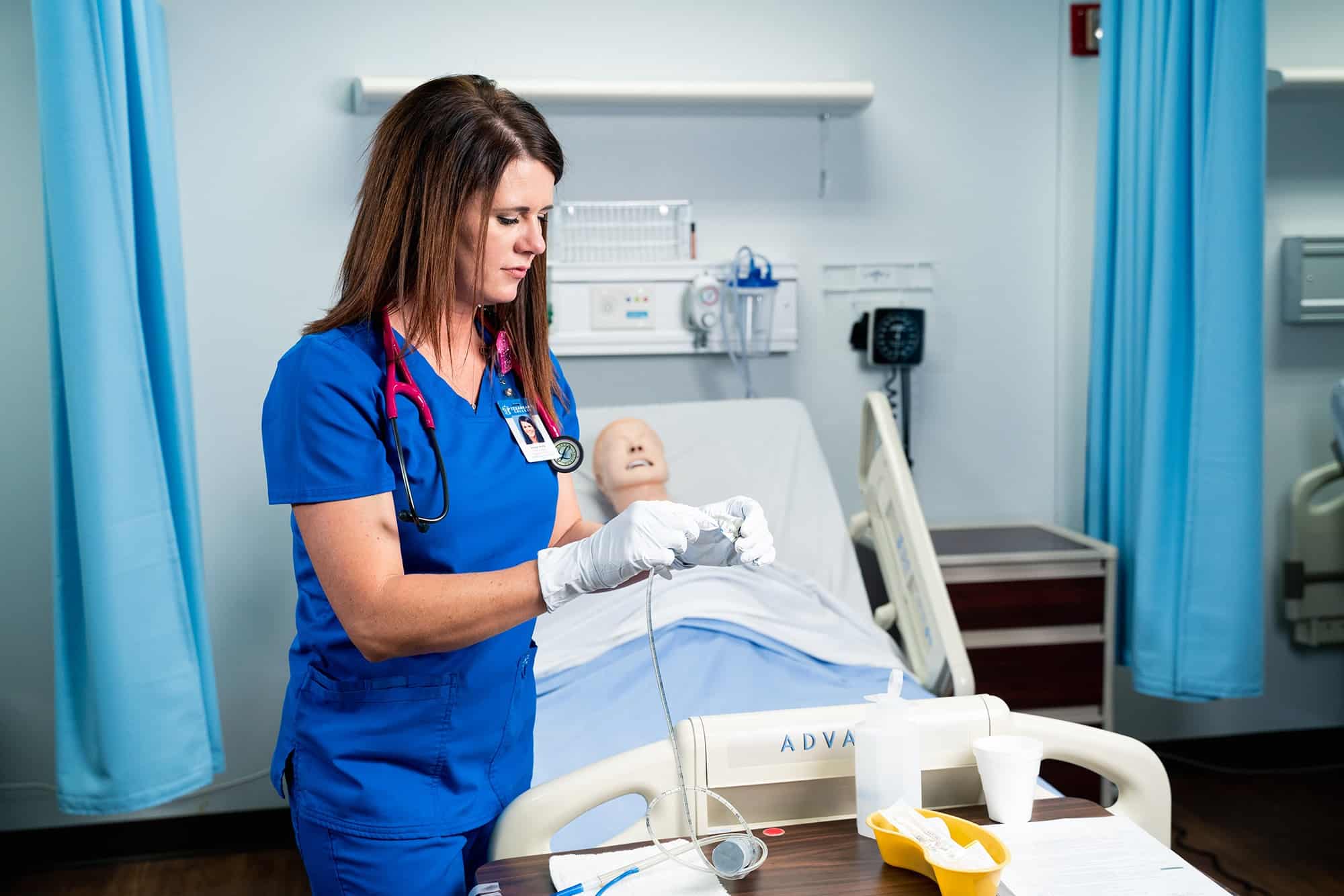Get Started: Careers With a Health Science Degree
Earning an associate degree at Texarkana College in health sciences serves as the perfect pathway for individuals preparing to launch a career in the medical field. Through this degree program, students are equipped with the science, technology, engineering, and math (STEM)-based knowledge and skills needed to succeed in the growing healthcare industry, or transfer to a university to pursue a bachelor’s degree.
An associate degree in health sciences provides prerequisites recommended for admission to a bachelor’s degree program that would prepare a student to pursue an advanced degree such as medicine, nursing, physical therapy, occupational therapy, pharmacy, dentistry, or public health administration.
Careers with a degree in health science are in high demand and lead to rewarding, financially stable jobs.
What are the benefits of studying health sciences at a community college?
An associate degree in health sciences gives a student the opportunity to gain a broad view of the healthcare industry explore career options while building a solid foundation in science and math. Students will complete theory-based coursework in biology, chemistry, anatomy and physiology, statistical methods, psychology, along with additional core courses that lead to an associate of science degree.
By starting your higher education journey at a community college like Texarkana College, you will be taking the same rigorous academic courses as you would at a four-year university, but you will receive more personalized instructor support due to smaller class sizes. This is a very important consideration for students who are wanting to earn a high grade point average to gain acceptance into competitive advanced degree programs.
Community College tuition is much less expensive than university tuition. The same courses will cost you a lot less than they would at a university.
There is a benefit to begin your career in health sciences with an associate degree. With a solid background in health sciences, many entry-level positions are available in healthcare that allow students to begin working while continuing to pursue their educational goals. Dr. Cat Howard, dean of Texarkana College’s STEM division, said an associate degree in health sciences provides opportunity for students to get real-world experience and explore different career pathways.
“An Associate of Science Degree in Health Science typically leads to technical or assisting entry-level careers in laboratories, radiology, dentistry, or research and development,” said Howard. “Additional career pathways with a degree in health sciences include community health work, advocacy, technicians, and health promotion, among other fields. An associate degree in health sciences is the gateway to a solid career pathway in healthcare and prepares students for university work. More career opportunities open with continued education and specialization.”
Students wanting to become a registered nurse would first enroll in the Associate of Health Science degree program at Texarkana College and pursue admissions into the Associate Degree Nursing (ADN) program after successfully completing core coursework. TC’s ADN program is one of TC’s flagship programs and is one of the oldest accredited ADN programs in the state of Texas.
Courtney Shoalmire, MNSc, MSN, RN
Dean of Health Sciences Division
Texarkana College
What does the educational path look like once I enroll in the associate degree in health sciences program?
Enrolling as a health science student at Texarkana College is the first step toward admissions into health care programs including the associate degree nursing (ADN) program that leads toward becoming an RN. A student pursuing an associate degree in nursing must complete core courses and earn a grade of a C or better to be considered for admissions into the ADN program at TC. Core courses include 24 semester credit hours in courses including communication, math, life & physical science, language/philosophy/culture, creative arts, American history, political science/government, social & behavioral sciences, and electives of student’s choice. An additional 36 hours in nursing courses are required to earn an Associate of Applied Science Degree in Nursing.
Additional fields of study to consider with a background in health sciences include Emergency Medical Technology/Paramedic or Pharmacy Technology.
What are some tips for someone going into health sciences?
- Whether you plan to begin a lifelong career in health care or want to earn a solid academic foundation in science, a degree in health science is a smart choice.
- If you have a passion for helping others, a degree in health sciences is the field for you.
- The demand for skilled professionals in health science is projected to grow over the next decade. Discover in-demand health science jobs based on your interest by taking an interest assessment.
- With continued, advanced higher education in health science and related fields, careers and salaries include Registered Nurse- $66,275; Nurse Practitioner- $115,430; Physical Therapist- $112,896; Occupational Therapist- $95,563; Family Medical Physician- $171,928; Radiologist- $252,346.
Texarkana serves as a healthcare hub for the Four-States area. With two hospitals and multiple health clinics, surgery center, medical specialists and nursing homes, registered nurses are in high demand – and that demand is projected to grow by 16% over the next 10 years.

Related to Academic Programs
Tagged with Nursing